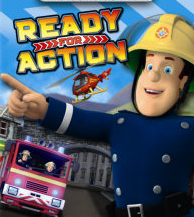 This website is dedicated to improving situational awareness of first responders. The precursor to situational awareness is situational readiness. I define situational readiness as: Having the ability to anticipate what things need to be in place to be well-prepared for an emergency response; and then, taking the steps necessary to ensure those things are done in advance of the actual response. What, precisely, is needed to ensure situational readiness? Here are 10 things that make a good start to the list:
This website is dedicated to improving situational awareness of first responders. The precursor to situational awareness is situational readiness. I define situational readiness as: Having the ability to anticipate what things need to be in place to be well-prepared for an emergency response; and then, taking the steps necessary to ensure those things are done in advance of the actual response. What, precisely, is needed to ensure situational readiness? Here are 10 things that make a good start to the list:
The list is in no particular order, nor can I call it complete. Rather, it’s what is coming to my mind as I reflect on what I know of organizations that display strong situational readiness.
Situational Readiness List
1. Hiring of the right people for the right reasons.
2. Firing the wrong people for the right reasons.
3. Developing a comprehensive program to train supervisors how to be leaders of people.
4. Building a safety culture where egos are kept in check and self-esteem is strong.
5. Ensuring members have all the tools and equipment necessary to ensure success.
6. Ensuring members are thoroughly trained on how to use their tools and equipment.
7. Training members for success using realistic and repetitive evolution, scenarios and simulations.
8. Ensuring the focus is first, and foremost, on the prevention of emergencies.
9. Evaluating opportunities for self-improvement following each emergency response.
10. Making small, incremental improvements over time. Avoid changing things at a pace that is faster than the organization can sustain.
Situational Non-Readiness List
Now, let’s look at the antithesis list. These are the hallmarks of organizations who are not well-prepared.
1. Hiring the wrong people for the wrong reasons.
2. Keeping poor performers whose attitude and disposition drag everyone down.
3. Doing nothing to train existing or newly promoted supervisors on how to lead people.
4. Allowing the organization to be run by leaders with big egos and poor self-esteem.
5. Denying the members the tools and equipment to be successful.
6. Withholding the training on how to effectively use their tools and equipment.
7. Training in unrealistic ways. Taking shortcuts and just going through the motions or doing no training at all.
8. Focusing entirely on suppression and ignoring prevention.
9. Ignoring the lessons from mistakes made at emergencies.
10. Making no improvements or trying to make major improvements quickly so the organization is set-up to frustration and failure.
Compare the lists and decide for yourself. Does your organization have situational readiness?
____________________
The mission of Situational Awareness Matters is simple: Help first responders see the bad things coming… in time to change the outcome.
Safety begins with SA!
_____________________________________________________________
Share your comments on this article in the “Leave a Reply” box below. If you want to send me incident pictures, videos or have an idea you’d like me to research and write about, contact me. I really enjoy getting feedback and supportive messages from fellow first responders. It gives me the energy to work harder for you.
Thanks,

Email: Support@RichGasaway.com
Phone: 612-548-4424
Facebook Fan Page: www.facebook.com/SAMatters
Twitter: @SAMatters
LinkedIn: Rich Gasaway
YouTube: SAMattersTV
iTunes: SAMatters Radio
_______________________________________________________
The content for this post was taken directly from the highly acclaimed programs, Fifty Ways to Kill a First Responder and Mental Management of Emergencies. These programs have been presented to more than 23,000 public safety providers from North America, Europe, Asia and Australia.
If your department or association is interested in hosting a program to improve situational awareness and decision making under stress, contact me at: support@richgasaway.com or call me at: 612-548-4424.


Great article. Straight to the point. I will spend time on each of the 10 (20) items in the lists. Thanks Richard.
Chief Ramsey,
Thank you very much for the reply and the kind words of support. I really, really appreciate it. You guys run a GREAT organization in Lenexa… and it shows! I really enjoyed my visit there. Keep up the great work! ~ Rich